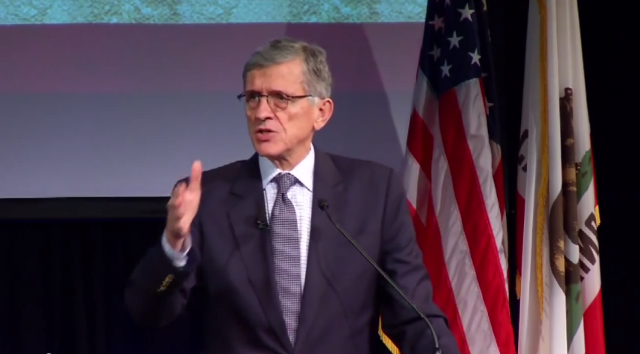FCC Chairman Tom Wheeler is proposing to raise the definition of broadband from 4Mbps downstream and 1Mbps upstream to 25Mbps down and 3Mbps up. Wheeler previously considered raising the standard to 10Mbps downstream, but left the door open for a definition of 25Mbps. In a related proceeding, the FCC ruled last month that ISPs receiving Universal Service funds to build rural broadband networks must provide at least 10Mbps downstream and 1Mbps upstream. AT&T and Verizon had objected to the 10Mbps requirement, claiming that 4Mbps is good enough for Americans.
In details it released to Ars Technica through a fact sheet, the FCC found “broadband is not being deployed to all Americans in a reasonable and timely fashion, especially in rural areas, on Tribal lands, and in U.S. Territories.” The commission’s data shows 17 percent of the American population doesn’t have access to 25 megabit speeds right now. It’s worse in rural areas, where 20 percent of the population doesn’t even get 3 megabits down. So increasing the speed required to make a connection “broadband” is generally thought to be a good thing, even if ISPs don’t like it.
In fact, AT&T and cable group NCTA have argued broadband should just be left alone, that 4 Mbps down is enough.



